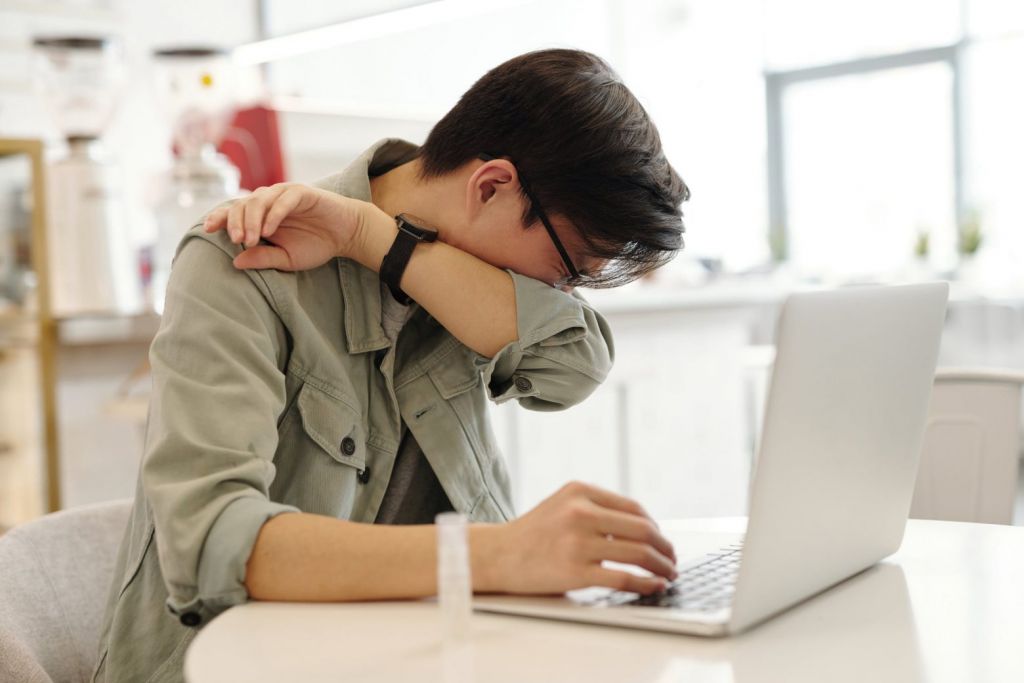
The coronavirus can lose up to 90% of its infectivity and ability to infect humans within 20 minutes of being in the air and most of this loss has occurred within the first five minutes, according to estimates of British scientists, who have simulated the ability of the virus to survive and infect when exhaled into the air by a carrier, in combination with environmental conditions, in particular humidity.
The use of a mask and the observance of distances, as well as the good ventilation of the spaces, help to prevent airborne infection.
“The greatest risk of exposure to the virus is when someone is close to someone. “When one moves away, not only is the aerosol diluted, but there is also a less contagious virus, as it loses its infectivity within minutes,” said lead researcher Professor Jonathan Raine of the University of Bristol, according to the British Guardian.
What new research shows
Previous studies have shown that the coronavirus can be detected in air droplets even after three hours. But a new British study – which has not yet been published – concluded that very soon after the virus-containing particles are expelled from the lungs by respiration, they begin to lose moisture and, on the other hand, increase their pH, resulting in the virus facing increasing difficulty to infect human cells. How quickly the infectious particles ‘dehydrate’ and thus lose much of their infectivity will largely depend on how much humidity is in the ambient air: the higher it is, the longer the coronavirus can infect .
The humidity factor
By the time humidity had dropped below 50% in the experiments, the virus had lost about half its infectivity in just five seconds, with a further slower loss of an additional 19% over the next five minutes. But if the humidity was at 90% (similar to that in a bathroom, for example), the reduction in infectivity was found to be slower, with at least half of the particles (52%) remaining contagious after five minutes and falling to 10% after 20 minutes. “So after 20 minutes the virus was estimated to lose about 90% of its infectivity.
Apart from the humidity that plays a key role, air temperature did not appear to significantly affect the infectivity of the virus, contrary to popular belief that its transmission is lower at high temperatures.
Latest News

PM Mitsotakis to Chair New Democracy’s Committee Meeting
Today’s meeting is seen as a crucial opportunity to halt internal disputes within ND and reaffirm unity within the party.

Trump Tariffs Jeopardize Growth: Piraeus Chamber of Commerce
The tariffs, aimed at reducing the U.S. trade deficit, are expected to have both direct and indirect effects on the European economy

EU Condemns Trump Tariffs, Prepares to Retaliate
As tensions escalate, the EU is expected to continue negotiations with Washington while preparing for potential economic retaliation.

The Likely Impact of Trump Tariffs on Europe and Greece
Trump tariffs are expected to negatively affect economic growth in the Eurozone while Greece's exports could take a hit.

Motor Oil Results for 2024: Adjusted EBITDA of 995 mln€; Proposed Dividend of 1.4€ Per Share
Adjusted EBITDA for 2024 was down 33% yoy. The adjusted profit after tax for 2024 stood at 504 million euros, a 43% decrease from the previous year

Cost of Living: Why Greece’s 3% Inflation Is Raising Alarm
Greece appears to be in a more difficult position when it comes to price hikes, just as we enter the era of Trump’s tariffs.

Fitch Ratings Upgrades the Four Greek Systemic Banks
NBG’s upgrade reflects the bank’s ongoing improvements in its credit profile, Fitch notes in its report, including strong profitability, a reduction in non-performing exposures (NPEs), and lower credit losses

Trump to Announce Sweeping New Tariffs Wednesday, Global Retaliation Expected
With Trump's announcement just hours away, markets, businesses, and foreign governments are bracing for the fallout of one of the most aggressive shifts in U.S. trade policy in decades.

Inflation in Greece at 3.1% in March, Eurostat Reports
Average inflation in the eurozone settled at 2.2%, compared to 2.3% in February

Greece’s Unemployment Rate Drops to 8.6% in February
Despite the overall decline, unemployment remains higher among women and young people.










































 Αριθμός Πιστοποίησης
Αριθμός Πιστοποίησης